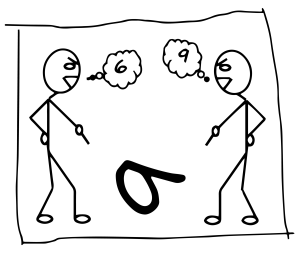The majority of civil lawsuits filed every year involve disputes over contracts. The sad reality it that most of these cases leave the legal system before anything is resolved leaving the parties to resolve their disputes out of court. In the end, the court system is too often reduced to nothing more than an expensive middleman to the dispute resolution process. So, I ask you, what purpose does litigation really serve to resolve any dispute? Leverage.
How, when and where to get Leverage
Without leverage its tough to get anyone to agree to anything. People tend to rely upon lawsuits to create that leverage. Its true, lawsuits do get peoples’ attention, they educate, they scare and they empower people. They also transform, for better and worse, the way people view their disputes. The irony of it all is that the leverage you get from a lawsuit almost always falls short of resolving the case. Statistics show that most people who file lawsuits later come to realize that they are almost always better off negotiating their own settlements out of court rather than relying on the court to have the final word to determine what they will recover.
Don’t Shoot First and Look for Leverage Later
You shouldn’t wait to file a lawsuit and rely upon the courts to gain the leverage needed to resolve disagreements. Instead, take a little extra time upfront to clearly document in writing all the key terms and conditions of your agreement and leave as little as possible for interpretation. In your agreement, give yourself one or more options how to handle disputes should they occur later. Establish upfront, that if a dispute later occurs, everyone agrees to clearly communicate the problem to one another and to try to resolve it privately before allowing anyone to file a lawsuit. Too few people have the foresight to include such a private dispute resolution process in their agreements and they regret it later. Once a dispute arises its usually too late to make any such arrangements. The only option left is litigation and once that starts, it quickly builds up a head of steam and is not easy to stop.
Self-Determination
The best way to resolve any dispute is privately without lawyers, judges, mediators, arbitrators or any other third parties. However, its not easy or comfortable for most people to navigate through the anger, conflict and uncertainty surrounding a failed relationship, business deal or contract.
Mediation, as opposed to litigation, provides people with a supervised, non-threatening and confidential negotiation process where the parties, not the lawyers ultimately control the outcome of the dispute and that outcome is usually much more certain and final than any determination or ruling that could be entered in court.
Legal Fights Continue LONG after Trial
You’ve heard the expression, “you can lead a horse to water but you can’t make him drink?” That applies to a large extent to people and their disputes as well as horses. Just because a judge or jury makes a determination what someone is entitled to recover or obligated to pay, there still remains a potential legal battle to fight to enforce it. Mediation, on the other hand, is a communication and negotiation process that is designed to help all parties formulate proposals and reach a final enforceable agreement that by the end of the mediation session, leaves no doubt that the fight is over.
So, establish the leverage you need upfront. Clearly document your agreements in writing and include in your agreements the right and obligation to mediate any disputes first before taking them to court. Visit www.4disputes.com to learn more.

